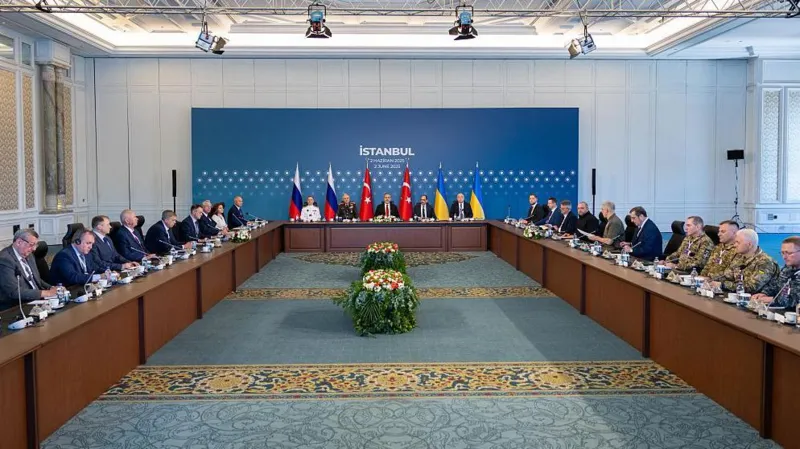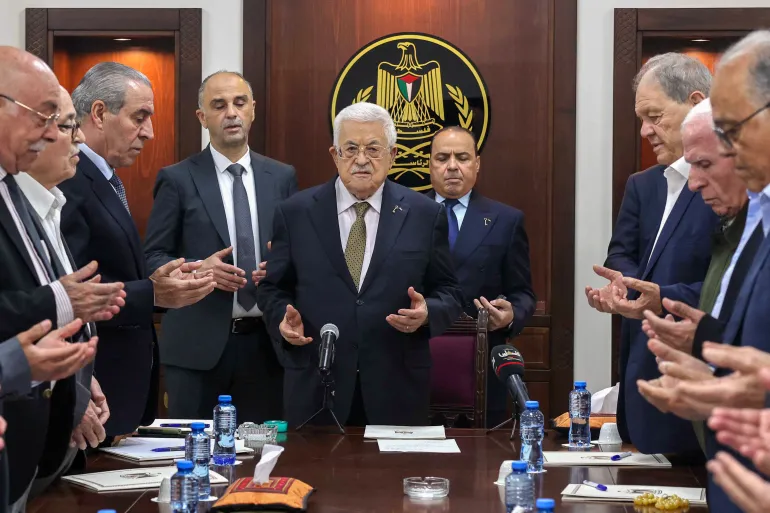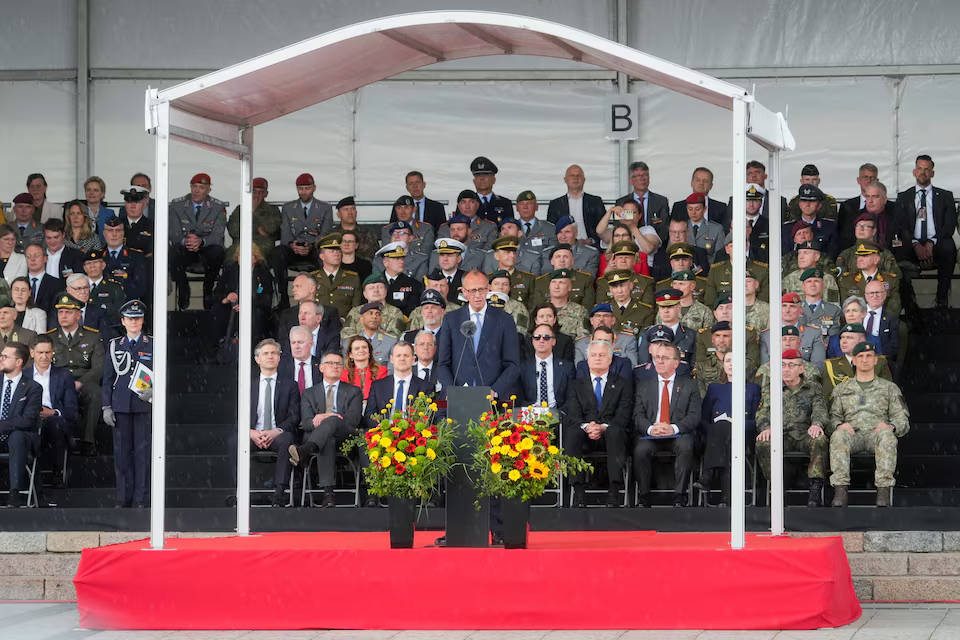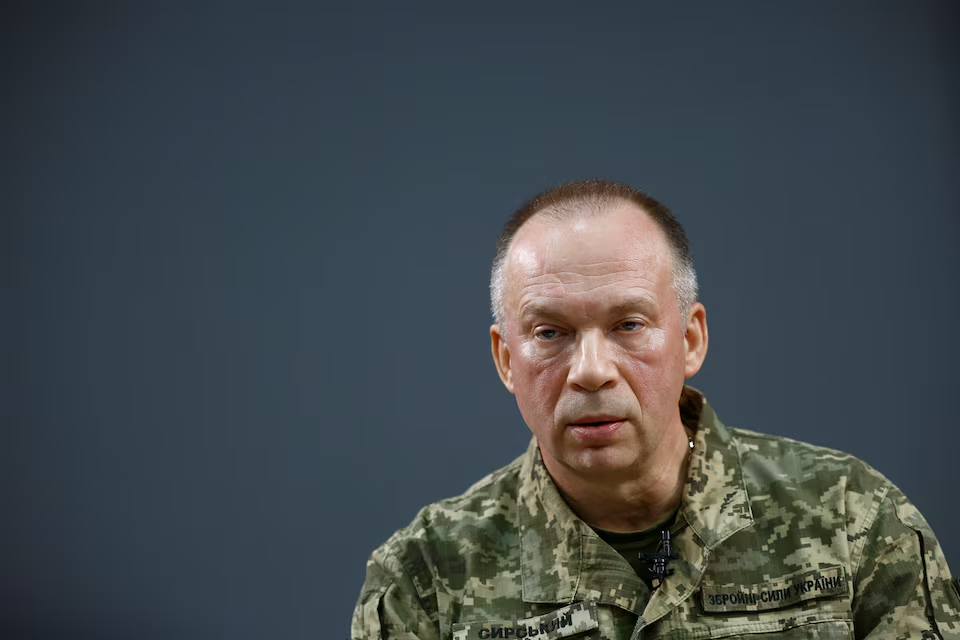A second round of direct peace negotiations between Russia and Ukraine ended without a breakthrough on a ceasefire agreement, but both parties agreed to a new prisoner exchange and the repatriation of soldiers’ bodies. The talks, held in Istanbul on 2 June 2025, resulted in an agreement to exchange all sick and seriously wounded prisoners of war, as well as those under the age of 25, in a gesture seen as humanitarian but falling short of broader peace hopes.
Ukrainian negotiators expressed disappointment after Russia again rejected Kyiv’s demand for an “unconditional ceasefire.” Ukrainian Defence Minister Rustem Umerov, who led Kyiv’s delegation, said Ukraine proposed a 30-day ceasefire covering land, sea, and air but accused Moscow of failing to present a counterproposal until the talks began.
“Ukraine wants a full and unconditional ceasefire to end the killings now,” Umerov said, adding that Ukraine had submitted its truce proposals several days prior to the talks. Ukrainian President Volodymyr Zelensky echoed the frustration, mocking Russia’s suggestion of a temporary truce to retrieve fallen soldiers. “I think ‘idiots’, because the whole point of a ceasefire is to stop people from becoming dead,” Zelensky posted on X.
Russian delegate Vladimir Medinsky confirmed the prisoner swap agreement and said Russia would return the bodies of 6,000 Ukrainian soldiers. Ukraine has pledged to return the same number of Russian bodies, although no timeline was announced for the exchanges.
Russia has framed its stance in terms of achieving a “lasting peace,” repeating its earlier demands, which Ukraine and Western allies view as unacceptable and tantamount to surrender. These include Ukraine’s withdrawal from the partially occupied Donetsk, Luhansk, Kherson, and Zaporizhzhia regions; recognition of Russian sovereignty over Crimea; restrictions on Ukraine’s military; a ban on its joining any military alliances; recognition of Russian as an official language; and the lifting of all international sanctions on Moscow.
None of these conditions were accepted by Kyiv. Ukrainian Deputy Foreign Minister Serhiy Kyslytsia confirmed Russia had again rejected a full ceasefire. Kyiv also handed over a list of hundreds of Ukrainian children allegedly abducted and taken to Russia, demanding their return.
Zelensky, speaking from Vilnius, Lithuania, stressed that while there were “no meaningful signals” from Russia to end the war, Ukraine must continue to bolster its defenses. He also renewed calls for stronger sanctions against Moscow.
The first round of direct talks on 16 May also failed to yield a ceasefire. At that meeting, the only agreement reached was a swap of 1,000 prisoners on each side. Observers had set low expectations for the second round due to the persistent gap between the two sides’ positions.
Despite the limited agreement in Istanbul, there is no sign of imminent high-level negotiations between Zelensky and Russian President Vladimir Putin. Ukrainian negotiators stated they expect a response to their ceasefire proposal by the end of June but acknowledged the prospect of a Zelensky-Putin summit remains distant.
U.S. President Donald Trump, who has expressed interest in facilitating a peace settlement, has held off on imposing tougher sanctions on Russia. White House spokesperson Karoline Leavitt said Trump remains “open” to a three-way summit involving himself, Zelensky, and Putin. “He wants both of these leaders and both sides to come to the table together,” she said.
Last month, Trump sharply criticized Putin following a massive Russian drone and missile assault on Ukraine, calling him “absolutely crazy.” The Kremlin dismissed the comment, attributing it to Trump’s “emotional overload.”
While the recent talks resulted in humanitarian gestures, the core issues fueling the war — now in its third year — remain unresolved. Ukraine and its allies accuse Russia of stalling negotiations to consolidate gains and capture more territory, while Russia continues to insist on conditions Kyiv deems impossible to accept.
With no ceasefire in place and both sides deeply entrenched, prospects for a comprehensive peace remain uncertain. The war has now killed tens of thousands and displaced millions, with little indication that a political resolution is near.
Source; BBC News



